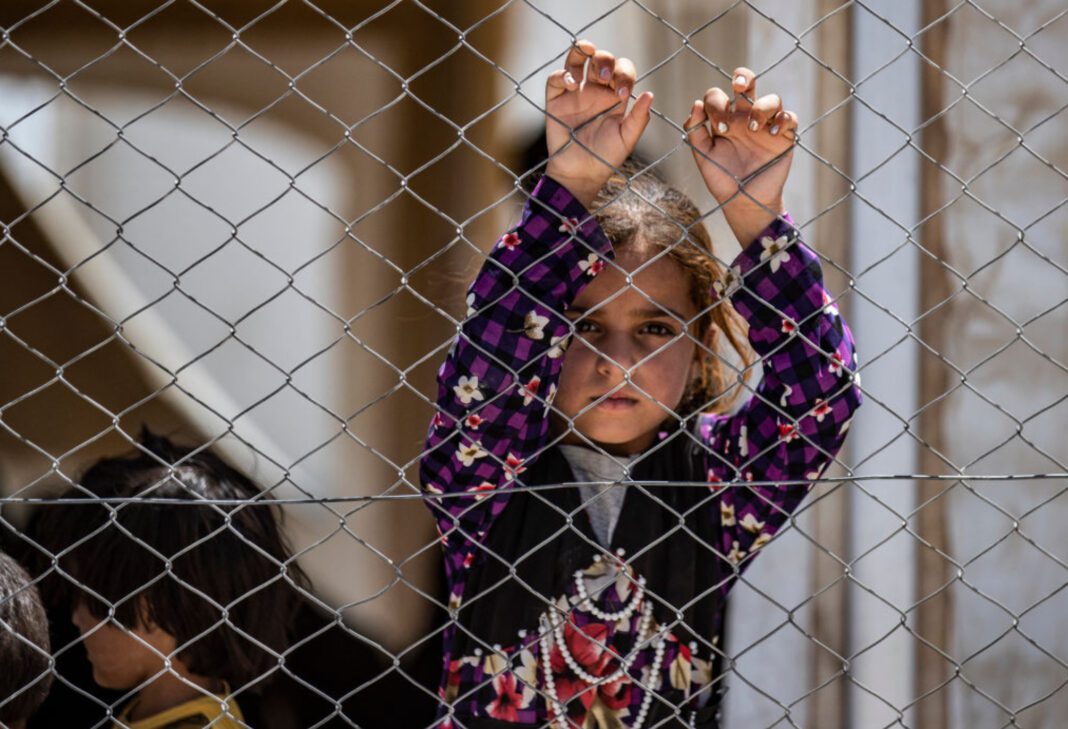Iraq Takes Bold Step to Bring Families Home
The Iraqi government and the United Nations (UN) have reached a historic agreement to repatriate all Iraqi families linked to Islamic State (IS) members from Syria’s al-Hol camp by 2027. This decision marks a significant step toward security, rehabilitation, and reintegration for thousands of displaced people.
Al-Hol, a sprawling refugee camp in northeastern Syria, houses tens of thousands of people, including families of suspected IS fighters. The camp has been a major security concern, with reports of radicalization, violence, and deteriorating humanitarian conditions.
First Batch of Families Return to Iraq
As part of the ongoing repatriation process, Baghdad recently welcomed 81 families from al-Hol camp. They were relocated to al-Jada camp in southern Mosul, northern Iraq, where they will receive assistance, medical care, and counseling. Since 2021, it has repatriated more than 2,600 families, and officials pledge to continue until every last family returns home.
The Challenge of Al-Hol Camp
Al-Hol camp currently holds over 20,000 Iraqis, mostly women and children who are relatives of former IS militants. These families have lived in difficult conditions for years, with limited access to food, clean water, and medical aid.
The camp is notorious for being one of the most dangerous refugee camps in the world, with IS-linked violence, radicalisation , and lawlessness making it a ticking time bomb for regional security. Baghdad has been under pressure to act, as authorities fear that prolonged stays in the camp could fuel extremism among the younger generation.
Iraq’s Plan for Repatriation
The Iraqi National Security Council has reviewed the situation and announced plans to accelerate repatriation efforts. A large-scale return operation will begin soon, bringing home thousands of displaced Iraqis in carefully managed phases.
Upon arrival, families will go through security screenings and psychological assessments to ensure safe reintegration into society. Some returnees may also undergo rehabilitation programs to prevent future radicalization.
Why Iraq is Taking Action Now
The war against IS caused mass displacement, with over 60,000 Iraqis and foreigners fleeing to Syria. While Baghdad declared victory over IS in 2017, the aftermath of the war left thousands of families stranded in limbo.
Keeping IS-affiliated families in camps for long periods has raised concerns among security experts, who warn that delayed repatriation could strengthen extremist networks. By bringing these families home, Baghdad hopes to reduce security threats, stabilise communities, and give innocent children a chance at a better future.
Challenges Ahead
Despite the bold move, the repatriation process faces major challenges:
– Social Stigma: Many Iraqis resent the return of IS-linked families, fearing security risks in their communities.
– Rehabilitation Efforts: Baghdad must provide counselling, education, and job opportunities to help these families rebuild their lives.
– Security Risks: Authorities must ensure that returning individuals are not involved in extremist activities.
Global Efforts to Solve the Crisis
Iraq is not the only country struggling to repatriate its citizens from Syria. Many other nations, including European and Asian countries, have hesitated to take back IS-linked individuals, fearing security threats and political backlash.
The UN has urged governments to step up their efforts and take responsibility for their citizens trapped in refugee camps. The agreement between Iraq and the UN is now being seen as a potential model for other countries to follow.
A Long Road to Recovery
While Baghdad’s commitment to repatriation is a positive step, success will depend on how well the country manages reintegration. Ensuring peaceful coexistence, justice, and economic opportunities for returnees is key to preventing future conflicts. GreeBy 2027, Iraq hopes to have brought back every last family from al-Hol camp, turning a dark chapter of displacement into a story of hope and recovery.

